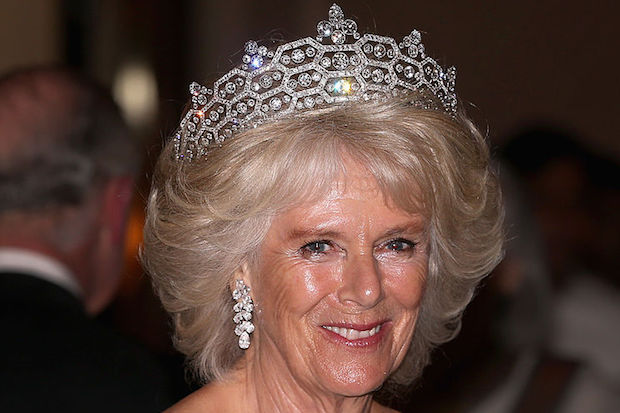It’s now or never
Sir: I read with great interest Paul Collier’s suggestion (‘Take back control’, 23 February) that Britain should withdraw Article 50 and remain in the EU as a means of obtaining a better exit at some point in the future. This would be a UK humiliated by the inability of parliament to carry out the clear direction of the voters after nearly three years. A UK so abjectly defeated it would hardly be in any position to build alliances. What EU country would want to endanger its reputation by supporting the country which has been taught such a salutary lesson by the European Commission?
The lack of reciprocity shown by the EU during the negotiations is hardly a basis to assume that such a move would lead to a willingness to allow us to repeat the attempt. Moreover, remaining in the EU would be the green light for the ECJ to ensure by its determinations that the UK joined the euro, the Schengen agreement, and no doubt removing our rebate for good measure.
Meanwhile, where would the government come from that would pursue Mr Collier’s suggestion? We have seen — and Rod Liddle accurately points it out in the same edition — that the Commons is dominated by Remain supporters. That is the overwhelming reason for the abject failure of the UK negotiation. The political class do not want to leave. There is nothing to suggest that would change in the next election and that either of the major political parties would become ‘Brexit 2’ flag-bearers. In reality, we all know this our one and only chance to exit.
Jonathan Moore
Harrow on the Hill, Middlesex
Join the SDP!
Sir: Rod Liddle writes ‘There is an appetite for a new political party… one which might represent those who are not enamoured with austerity and quite like the idea of nationalising the railways, but are pro-Leave, pro-nation state… which puts its faith in the traditional family as the cornerstone of society and which values community and the notion of “doing the right thing”’ (‘New party, same old views’, 23 February).
It exists! It’s the SDP. We’re alive and well, and we couldn’t have written a better paragraph to describe our position as Rod has just done. Check out the New Declaration policy framework: it will be music to Rod’s ears, and hopefully much of the population.
Matthew Leese
Sheffield
Insufficient funds
Sir: Charles Moore’s report of the imminent closure of ATM machines reminds me of the very early days of cash machines (The Spectator’s Notes, 23 February). The first time I tried one, it flashed up ‘insufficient funds’; so I tried another two, only to be faced with the same message. Somewhat irritated, I wrote to my bank complaining that they should stock their machines more often — to be told politely that the insufficient funds were mine, not theirs.
Peter Fineman
Mere, Wiltshire
Tech problems
Sir: These endless articles about how artificial intelligence is going to take over the world make me grind my teeth with rage (‘More than human’, 23 February). I have just spent three hours of my life trying to get my desktop computer to recognise the existence of my desktop printer. My own experience is that the biggest challenge facing mankind is how to keep the rubbish that the IT industry has foisted on us from going belly up. Examples of massive IT crises happen on a regular basis. NHS system crashes, Air Traffic System meltdowns, railway booking systems… the list is endless.
I have been a pilot for most of my working life and one of the things that is ingrained in every pilot’s brain is the knowledge that, sooner or later, the wonderful new all-singing all-dancing IT system is one day going to try to kill you.
Mark Wilkins
Cheltenham
AI PR
Sir: I was struck by the high regard that Aimé, the ‘bot’ that contributed to your article on artificial intelligence, seems to have for McKinsey & Company’s research (‘More than human’, 23 February). How does such a utopian and fair-minded computer programme choose which corporations to name-drop? Does Aimé accept payment in bitcoin, or perhaps the new JP Morgan coin?
James Hulme
Earlsdown, East Sussex
Pecking orders
Sir: Laura Freeman is absolutely right to halt the madness of hen parties for her own prospective wedding plans (‘Clucking hell’, 23 February). They really have become a revolting symptom of our entitled age, especially the foreign weekend variety.
Even worse, however, is the foreign wedding ‘week away’. Not so long ago, if you went away for your wedding, it was to avoid the guests. Now people expect to take them along, but also expect them to self-fund the trip. It’s insane. We turned down one such invitation about ten years ago and found ourselves blackballed socially for the next five years, until the couple in question divorced and we could all be friends again. Given the brevity of the marriage, it probably wasn’t worth attending anyway.
I do hope more couples will scale things down and realise the big deal is the marriage, which one would hope to last a lifetime, not the wedding and associated festivities, which are soon over.
Lyndsey Simpson
Leyland, Lancashire
Mornington Crescent
Sir: With all the talk about ghost stations (Letters, 23 February), I wonder why no one has mentioned Mornington Crescent.
David Berry
London SW20






Comments